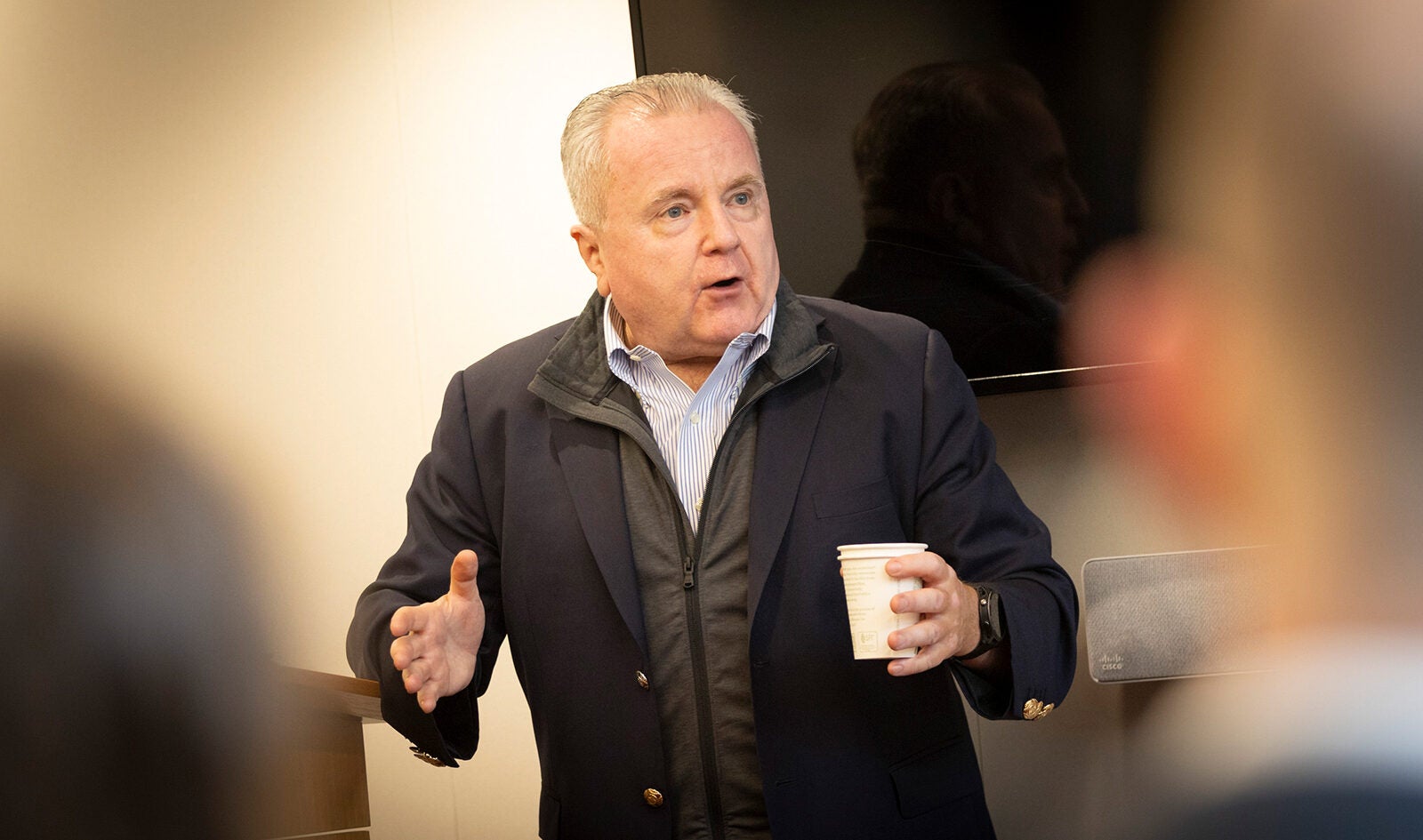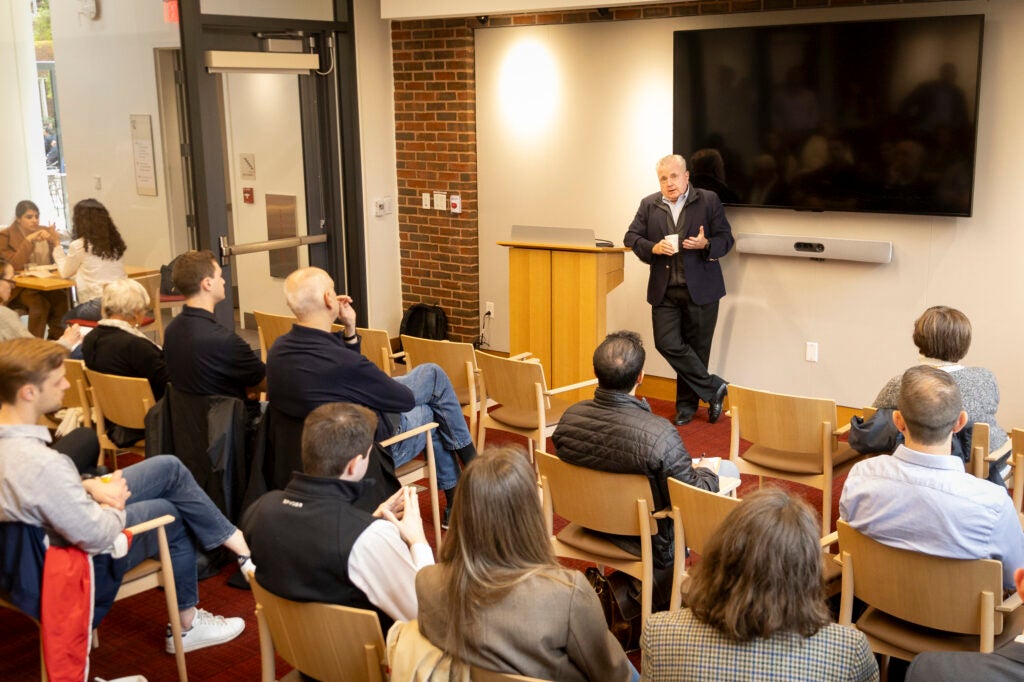
John Sullivan (pictured) speaking during the event. Photos of a seminar titled, Russia’s War Against the West: A Conversation with Ambassador John Sullivan. The event is moderated the the Intelligence Project and takes place in the Wexner Building of the Harvard Kennedy School at Harvard University. John Joseph Sullivan is an American attorney and government official who served as the United States Ambassador to Russia from 2020 to 2022, and who previously served as the 19th United States Deputy Secretary of State from 2017 to 2019.
Photos by Niles Singer/Harvard Staff Photographer
Imagining a different Russia
Former ambassador sees two tragedies: Ukraine war and the damage Putin has inflicted on his own country
The same week President Biden signed legislation to provide $61 billion to support Ukraine in its war against Russia, a former U.S. ambassador to Russia discussed the run-up to the war during a visit to the Kennedy School.

John J. Sullivan, a Boston native, was appointed by former President Donald Trump in late 2019 to serve as the nation’s top diplomat in Moscow. Though he strongly opposed Vladimir Putin and his regime, he wasn’t “looking for a fight.”
“I was looking for the few areas that we could cooperate,” Sullivan said on Wednesday — like space, cyber, strategic stability, and arms control. He also hoped to discuss the return of wrongfully detained Americans. “I’m sorry to say we made progress on none of that,” he said.
There was little indication that Russia was planning to attack Ukraine during the final year of the Trump presidency or in the first six months of the Biden administration, Sullivan said. Ukraine had not been a major diplomatic concern and rarely came up in talks between the two countries.
But by October 2021, as Russian military infrastructure and troops were amassing on the Ukraine border, U.S. officials realized that Russia was indeed planning to invade its neighbor. Sullivan recalled joining CIA Director Bill Burns to confront Kremlin officials the following month, as Russian officials continued to deny attack plans while boasting about the country’s military capabilities.
In hindsight, Sullivan said, Putin was always going to invade Ukraine regardless of any outside circumstances, including a Trump victory in 2020.
“It’s a catastrophe what’s happened to Ukraine. I feel passionately about it, but it’s equally tragic what’s happened to Russia.”
The Russian leader hasn’t been and won’t be dissuaded even by the great damage the conflict has inflicted on the Russian economy, the military, and its population, according to Sullivan: “Putin does not have an off-ramp; he does not want an off-ramp in Ukraine.” He continued: “It’s a catastrophe what’s happened to Ukraine. I feel passionately about it, but it’s equally tragic what’s happened to Russia” under Putin and as a result of the war. “This is a great country and a great people who could make contributions to humanity.”
A key U.S. priority during Sullivan’s tenure was to extend the Strategic Arms Reduction Treaty (START), which was set to expire less than a month after Biden took office. Sullivan described a frustrating series of talks with Russian officials en route to a deal. “Nothing is ever easy, even if we both wanted the same thing,” he said. (The Russians have since suspended their participation in the treaty.)
Sullivan was the deputy secretary of state from 2017 to 2019, and served briefly as acting secretary after Rex Tillerson was fired from the post in 2018. He succeeded Jon Huntsman as ambassador to Russia after Huntsman stepped down to run for governor of Utah. In fall 2022, the Russian government froze him out and ordered him to leave Moscow, which he did. He’s now banned from traveling to Russia.
Contrary to conventional wisdom, Sullivan said, the Russians didn’t feel the Trump administration went easy on them. He saw no evidence that Putin had compromising information on Trump that would explain the U.S. president’s stated admiration for the Russian leader. Sullivan also pushed back on the perception that Putin and Trump had some “corrupt, special relationship.”
Trump had the same kind of relationship with other world leaders, he said, including Xi Jinping of China, Narendra Modi of India, and Recep Erdoğan of Turkey. “It’s all about what benefits him, Trump, personally, without a vision of what’s in the interests of the United States more broadly,” he said.




